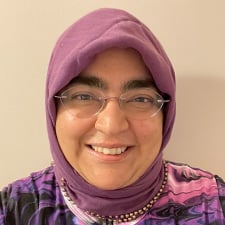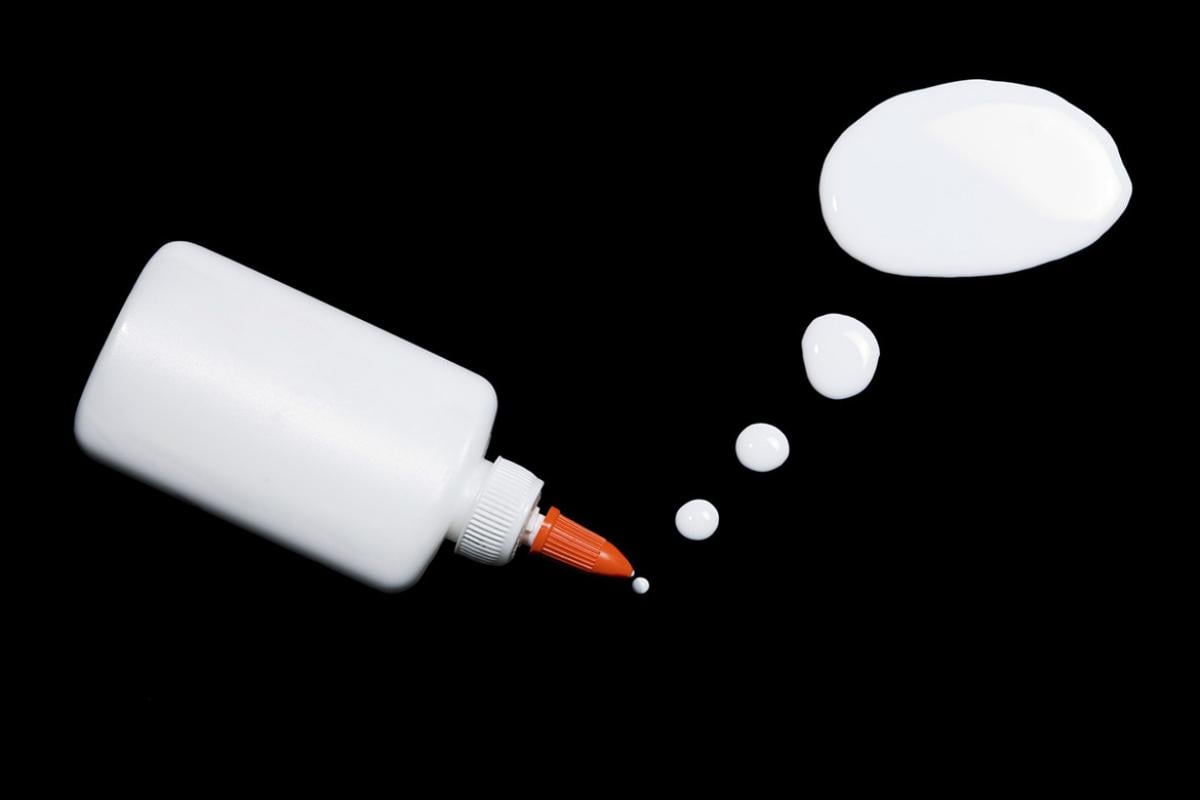As a medical student, do you ever wonder what it’s like to specialize in pediatrics? Meet AMA member Nusheen Ameenuddin, MD, MPH, MPA, a pediatrician and a featured physician in the AMA’s “Shadow Me” Specialty Series, which offers advice directly from physicians about life in their specialties. Check out her insights to help determine whether a career in pediatrics might be a good fit for you.
The AMA’s Specialty Guide simplifies medical students’ specialty selection process, highlights major specialties, details training information, and provides access to related association information. It is produced by FREIDA™, the AMA Residency & Fellowship Database®.
Learn more with the AMA about the medical specialty of pediatrics.
“Shadowing” Dr. Ameenuddin
Specialty: Pediatrics.
Practice setting: Primary care within an academic medical center.
Years in practice: 15.
A typical day and week in my practice: I am primarily a clinician, so I’m seeing patients most of the day or teaching and supervising residents in clinic. Since I also work within an academic medical center, I wear a few other hats. I have a modest amount of administrative time where I serve as chair of diversity and inclusion for the Mayo Clinic Health System, which includes all the Mayo-affiliated clinics in the upper Midwest. Many of the clinics are in small towns and rural areas which are much more diverse than people might think.
I have practiced full-time, five full days a week plus evening clinic and weekend morning clinic when I was scheduled on a rotating shift with my colleagues, but recently cut down to four days a week so I can have a day to take care of all of my other responsibilities and do volunteer work related to my specialty society as well as other advocacy work that’s not officially a part of my day job.
The most challenging and rewarding aspects of pediatrics: The hardest part for me, especially when I graduated from residency, was this growing group of loud anti-vaccine and anti-science voices controlling the media and popular narrative on immunizations and spreading mass misinformation and disinformation. Every week I was dealing with some type of vaccine hesitance or outright refusal, which are actually two very different issues and require very different approaches.
That experience made me dig deeper into vaccine science and the importance of communication because it’s not enough to tell people that decades of scientific research have shown that vaccines are safe, effective and save lives.
I’ve had to deal with all kinds of conspiracy theories. Parents have told me that “polio isn’t that bad.” Some have even said that while they trust me as a person, they believe that I have been brainwashed by pharmaceutical companies to “push vaccines.”
That erosion of trust and expertise coupled with the rise of conspiracy theories has been especially difficult and has been the case for a long time before the pandemic. If nothing else, it prepared pediatricians and other primary care physicians for what we’ve been experiencing in the last couple of years.
On the other hand, kids are the absolute best! Even though we see some really sad things, one of the great things about children is that we see resilience and joy even under extremely difficult circumstances.
I have so much respect for the parents of medically complex children as well as the ones who are helping their children through mental illness, which has been rising almost exponentially since I started practice, especially in the past decade, even prior to the pandemic.
Kids can always say something or do something that makes me smile and remind me of why I chose to become a pediatrician.
How life in pediatrics has been affected by the global pandemic: Aside from the basic changes where I am now masked and face-shielded every time I see a patient—with additional measures if they are symptomatic—there has just been an overall change in the way I approach patients.
I spend a little bit more time trying to normalize the amount of stress everyone has been under with the pandemic. The kids and parents are more willing to share concerns about anxiety and depression now than before and it’s been an opportunity for us to all try to prioritize what’s most important in our respective lives.
As someone who is interested in the effect of media on children and the importance of good science communication, I’ve also tried to stress the importance of good mental health and the importance of rest to be able to face and adapt to so many of these new challenges brought on by the pandemic.
The long-term impact the pandemic will have on pediatrics: I hope, optimistically, that more people will consider going into pediatrics as a result of the pandemic. We get to see kids being thoughtful, caring, resilient and funny in the face of all this difficulty. They are role models. They adapt. They care about other people. In many ways, if we really prioritized children and let their best interests lead the way, we would have all been much better off during the pandemic and beyond.
Three adjectives to describe the typical pediatrician: Advocacy-oriented, child-centered, probably a little goofy.
How my lifestyle matches, or differs from, what I had envisioned: I never imagined I would have a job in an academic center. My goal was to go back home to Kansas and practice in my hometown, but that did not happen, even though I tried really hard to find—and even create—a job there. I ended up finding my first job later than most in a beautiful, welcoming community in a remote area of northern Minnesota. I figured I’d work in a small town, and I knew that I’d have to work hard and that my life would not always seem like my own. I did that for a few years and found parts of it very rewarding, but medical knowledge is expanding every day and it’s honestly hard to be able to do everything well without specialists and other psychosocial support for patients.
What is even harder is that I’m trying to share good, accurate information with people, and they don’t always believe it, either because they have already made up their mind based on misinformation or perhaps for other reasons.
I don’t think primary care medicine is easy, but I do think that it’s worth it. There’s a reason why we study and train for so many years. Even then, we’re constantly unlearning and relearning. So much of what drew me to medicine has changed in a world that prioritizes profits over patient care and that gives large platforms to celebrities who profit from misinformation rather than to people who share good solid information, but all of these things have forced me to learn new skills. Even though it is often frustrating, medicine has helped shaped me into a person who is constantly learning, questioning and looking deeper.
Skills every physician in training should have for pediatrics but won’t be tested for on the board exam: Communication is key. You have to understand how different people are going to receive communication in different ways. There’s no such thing as a one size fits all approach because different people have different priorities. Cultural competence or, more accurately, cultural humility is key.
Unfortunately, we are also seeing people being more abusive and racist in a variety of other unacceptable ways, so we as physicians need to learn how to create systemic change that protects and uplifts our colleagues who face discrimination and, ultimately, create a stronger, more inclusive and equitable medical system that will best serve all of our patients, especially those from communities that have been historically excluded.
One question physicians in training should ask themselves before pursuing pediatrics: Is this a specialty you can see yourself coming back to the next day even after the really bad days that will inevitably come? If the answer is yes, then this is the specialty for you.
Books every medical student interested in pediatrics should be reading: When I was a medical student, I contributed an essay to the book What I Learned in Medical School: Personal Stories of Young Doctors, an anthology of medical students from diverse backgrounds sharing their experiences. I don’t think I completely appreciated it at that point, but much of what has risen to the top of our collective consciousness now and medicine’s own reckoning with structural racism was discussed to some degree at that time. I’d have a different experience reading the book now than I did when I was living through it as a hijab-wearing Indian American Muslim woman medical student 20 years ago.
I recommend reading Stamped from the Beginning: The Definitive History of Racist Ideas in America, by Ibram X. Kendi, for some very necessary background on systemic racism and its continuing effects that we were not taught in school. Kendi’s wife is a pediatric emergency medicine physician, by the way.
Finally, I recommend The Power to Heal: Civil Rights, Medicare and the Struggle to Transform America’s Health Care System, by David Barton Smith, PhD, because it shows how important and effective federal policy can be in closing gaps and inequities.
Quick insights I would give students who are considering pediatrics: You need to have realistic expectations. Many of us went into pediatrics because we love children and enjoy the playful aspect of our job. That is a big part of what we do, but we also must be ready to deal with the really hard parts which don’t just involve very sick kids, but a system that really is not built to protect children. As pediatricians, we have to be committed to changing the system, particularly for our most vulnerable young patients.
Mantra or song to describe life in pediatrics: There were two songs that would run through my mind post-call, one as a third-year medical student and the other as a first-year pediatric intern. It’s funny that both of them involve alcohol because I don’t drink at all and never have, but “Tubthumping,” by Chumbawamba and “Sloop John B,” by The Beach Boys somehow captured what it felt like to have a crushed spirit but also to get up again afterwards. Resilience is of the soul of pediatrics, both for our patients and ourselves as pediatricians.




